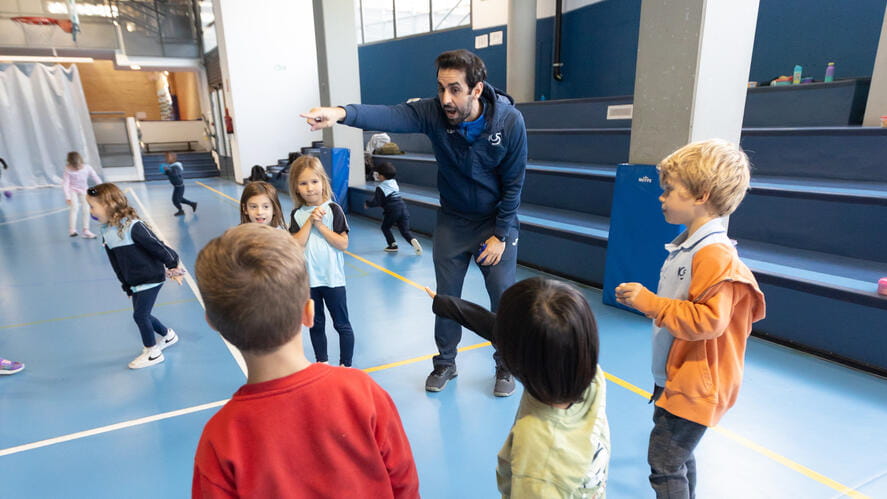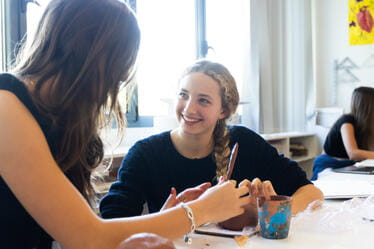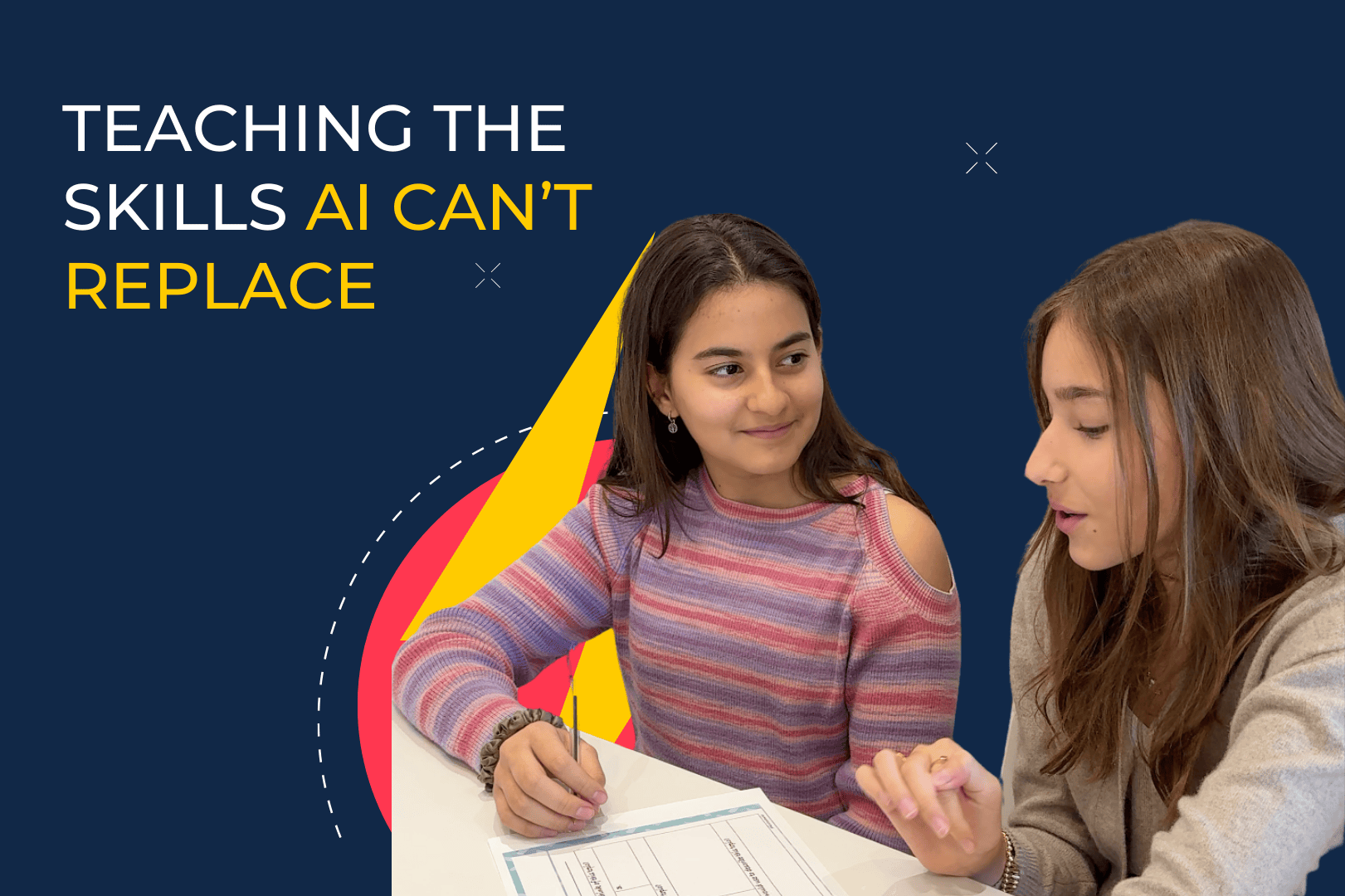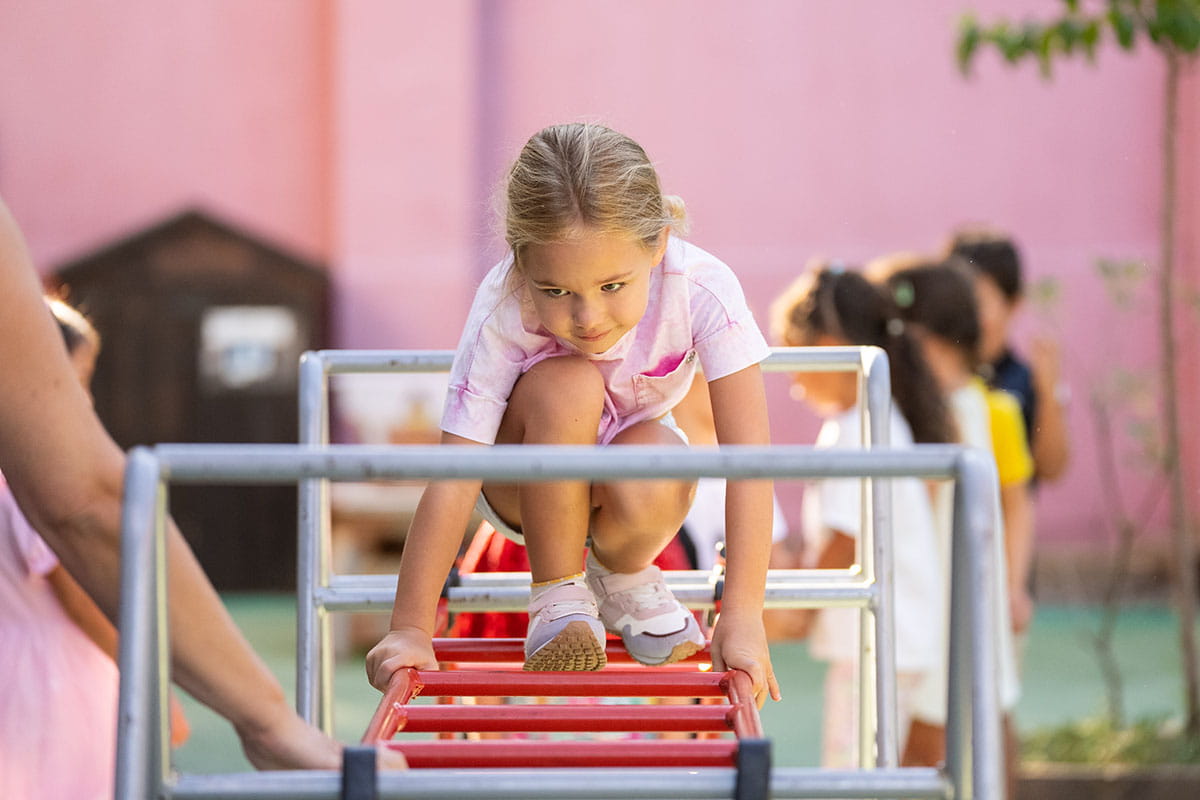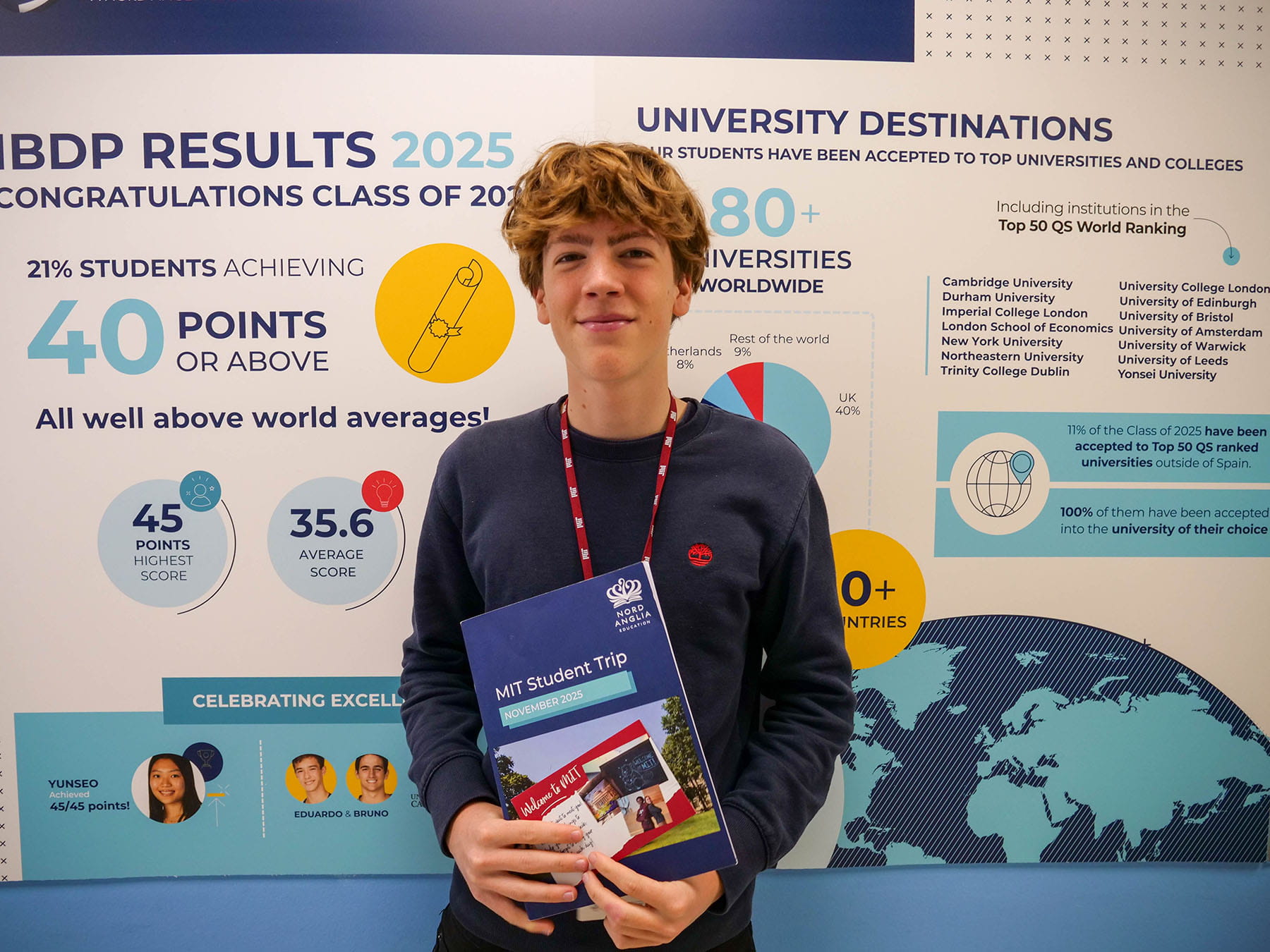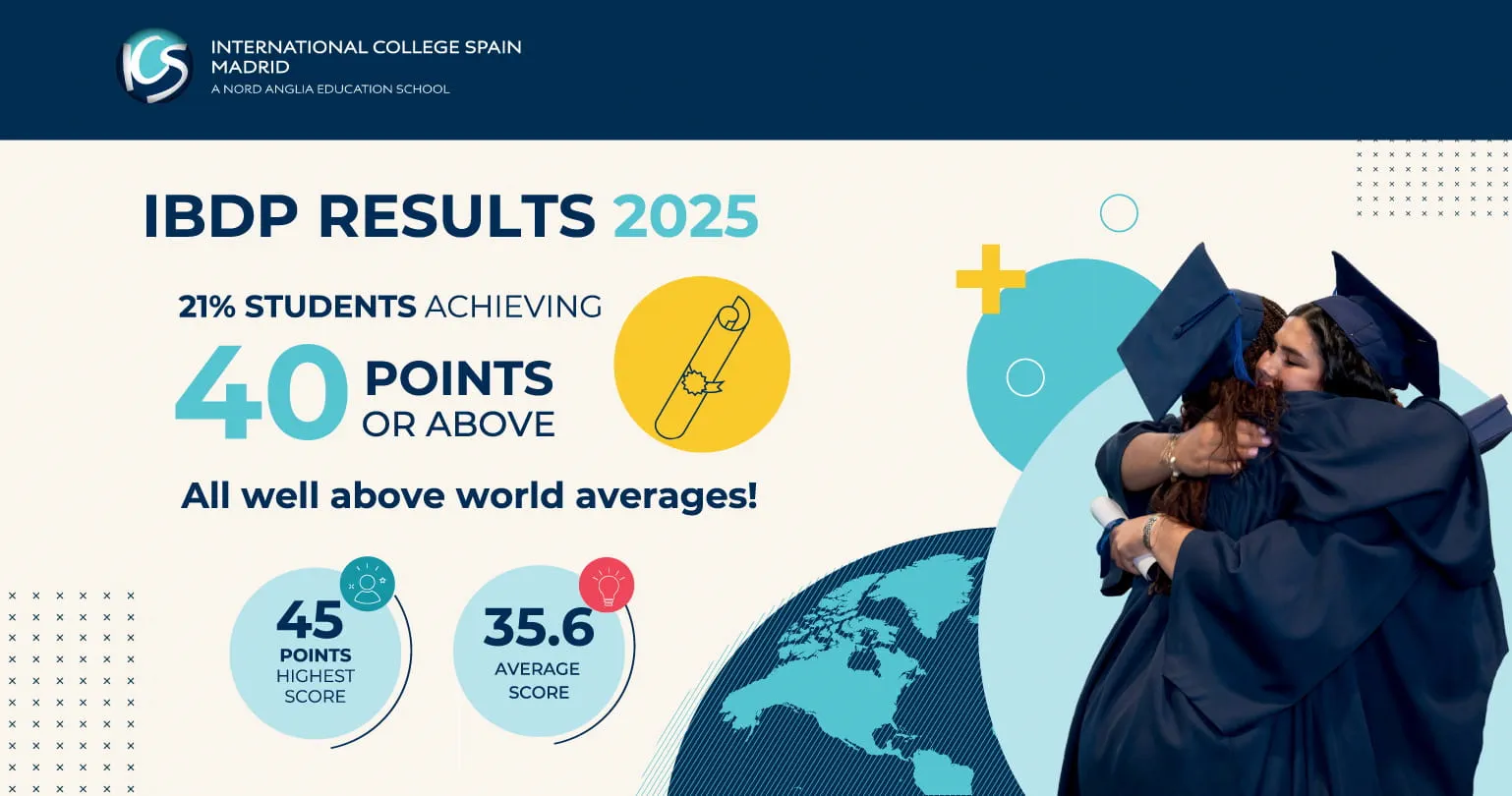We embrace the joy of
Early Years education at International College Spain (ICS).
Our play-based learning approach, which is underpinned by the
International Baccalaureate curriculum, sparks wonder, encourages exploration, and ignites our littlest learners’ imaginations.
Engaged, excited, and having fun, our children develop the academic, social, emotional, and physical skills they need to thrive. They also develop a love of learning that stays with them throughout their education.
In this blog, we explain the benefits of learning through play. We also highlight the science behind play-based learning – and share some of the activities our youngest students most enjoy!
What does ‘learning through play’ mean?
Learning through play is the development of knowledge, understanding, and skills through playful activities.
Play-based learning in the
Early Years takes lots of different forms. It includes, for example, hands-on, sensory activities, where children experiment, explore sounds and textures, and get moving outdoors. It also includes singing songs and sharing stories to develop early literacy skills. Learning through play actively engages our children with the people and world around them, too.
These immersive, hands-on experiences develop lifelong skills, including problem-solving, creativity, and independence. They’re also proven to be a much more effective way for young children to learn than sitting at a desk!
Learning through play is purposeful and backed by research
Our play-based learning approach to Early Years education is outcomes-driven, aligned with our International Baccalaureate (IB) Primary Years Programme (PYP) curriculum, and backed by research.
Studies show that play unlocks powerful learning opportunities across all areas of early childhood development – the social, the emotional, the cognitive, and the physical. In fact, research demonstrates that children who take part in regular play-based learning develop better emotional intelligence, cognitive skills, and adaptability than those who engage in more traditional learning methods.
Play-based learning through the IB Primary Years Programme
Every activity and experience we offer is carefully aligned to our
IB PYP curriculum, which is the first stage of our IB continuum of academic programmes.
The Early Years element of the PYP gives our children the freedom to play and learn, nurturing their creativity and building the confidence they need to make great progress throughout their educational journey.
The Early Years of the IB PYP:
Encourage children to explore their surroundings through play, discover the world, and build relationships with peers, teachers, and family members.
Are delivered by teachers and support staff who are partners, nurturers, and guides. They empower students to explore their interests through long- and short-term projects.
Encourage hands-on, indoor and outdoor learning, which ignite curiosity, spark imaginations, and build confidence.
Learning in this way ensures our students hit key developmental milestones. This means developing fundamental pre-numeracy, literacy, analytical, and scientific knowledge, as well as essential emotional, social, and movement skills.
What are the benefits of learning through play?
Play-based learning activities bring an incredible array of short- and long-term benefits.
Here are just some of the ways learning through play nurtures our children’s growth:
- Play sparks imagination and innovation through role-play, arts, and crafts.
- Play encourages cooperation, cultivates empathy, and allows emotional expression.
- Play enhances critical thinking, problem-solving, and analytical skills.
- Play builds confidence by providing opportunities to take control and choose activities.
- Play boosts vocabulary, communication, and language comprehension.
- Physical play improves coordination, balance, and movement skills.
- Play teaches decision-making, impulse control, and following rules.
- Play instils a love of learning.
Examples of learning through play at ICS
Our Early Years teachers deliver a carefully planned mix of age-appropriate, playful learning activities. These are designed to nurture every aspect of our students’ growth, as well as to create a happy, stimulating, and joy-filled environment.
Some examples of play-based learning activities include:
- Sensory play: Playing with sand or water (develops fine motor skills and sensory awareness).
- Outdoor play: Running, climbing, and ball games (develops physical coordination and social skills).
- Pretend play: Role-playing as animals, superheroes, or family members (develops creativity and social skills).
- Arts and crafts: Drawing, painting, and crafting (develops creativity and fine motor skills).
- Music and movement: Singing, dancing, and playing instruments (develops coordination and self-expression).
- Social play: Group games like hide-and-seek (develops communication and teamwork)
- Reading and storytelling: Listening to stories or making up their own (develops language and imagination).
We encourage our children to take charge of how and what they learn, too. This builds independence and gives them the freedom to experiment and do what they enjoy.
Learning through play in a safe and stimulating environment
These play-based learning activities take place in dedicated Early Years spaces, as well as through carefully planned off-site excursions.
On campus, our Early Years facilities include play areas, a mud kitchen, colourful classrooms, and lots of green spaces. These safe yet stimulating settings give our children the freedom to explore, interact, and get stuck in.
Our strong sense of community – and a real family feel – ensures every student feels comfortable and ready to learn, too.



